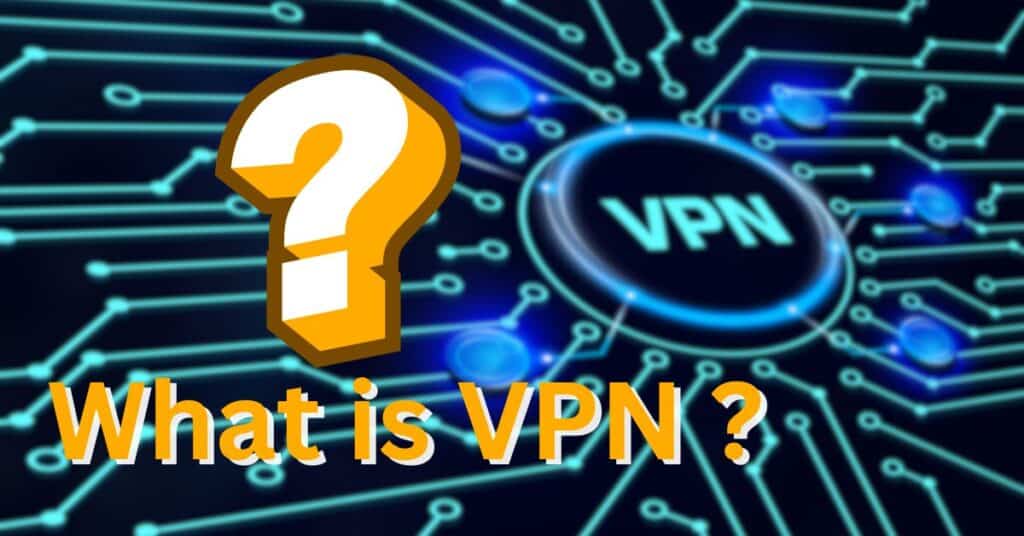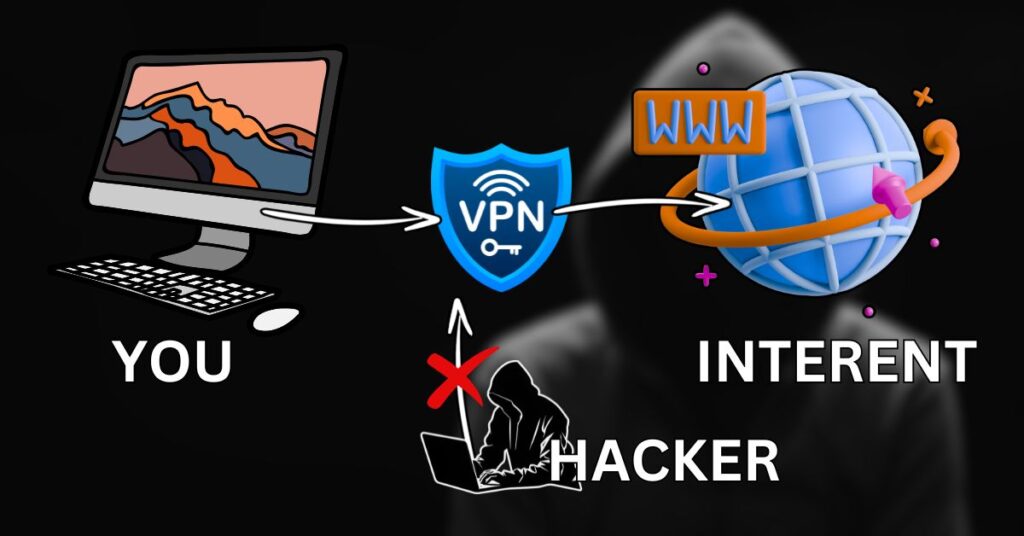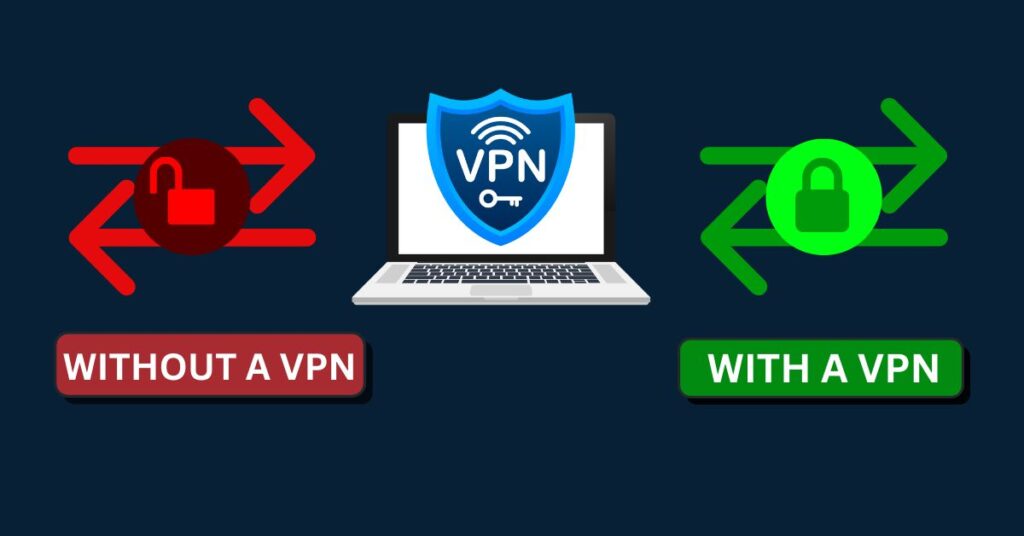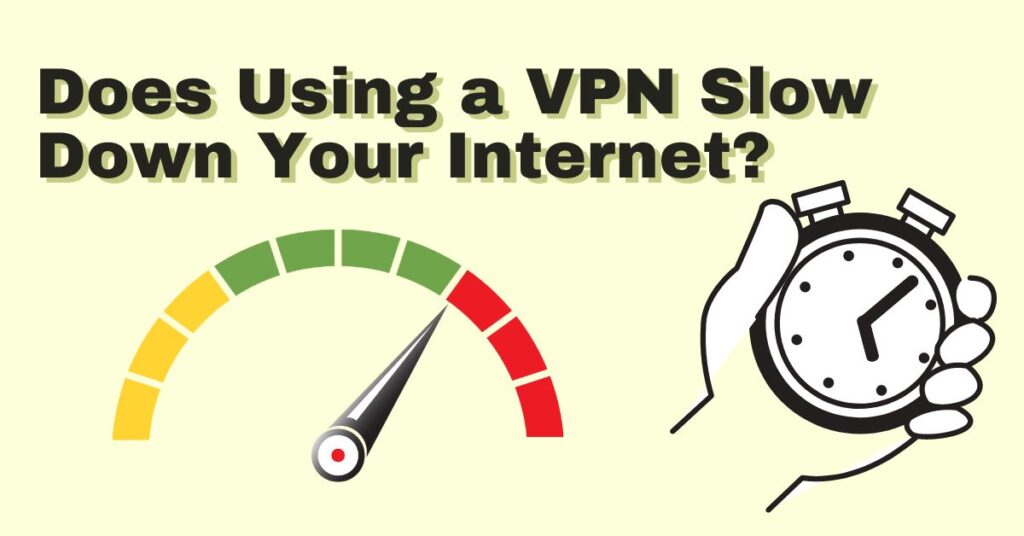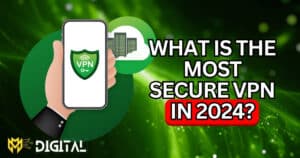
In the digital world today, using a virtual private network (VPN) is important to protect your privacy and secure your internet use. As an expert on VPNs with 15
years’ experience, I’ve carefully tested and reviewed many VPN services. This guide covers the best VPN options for 2024.
Whether you want advanced security or simple use, this article can help you find the right VPN. We’ll look at the top options, compare their pros and cons, and give expert advice to help you decide.
Why You Need a VPN
In 2024, using a VPN is very important. Here’s why: VPNs can protect your online privacy. They encrypt your internet traffic. This hides your activities from others. VPNs add security when using public Wi-Fi. This protects you from cybercriminals.
VPNs let you access content blocked in your region. This includes streaming services and websites. VPNs can prevent your ISP from slowing your connection. They do this by encrypting your traffic. VPNs hide your real IP address. This makes it harder for websites to track your location and identity.
How does a VPN protect your privacy? Imagine your internet connection as a tunnel. Without a VPN, this tunnel is clear. Others can see your online actions. A VPN wraps this tunnel in extra encryption. This makes the tunnel private and safe.
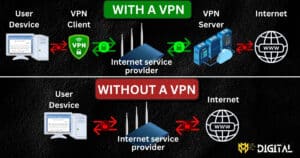
Our Top 15 VPN Services for 2024
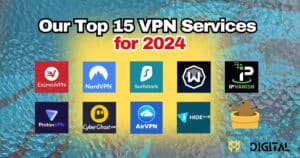
After careful testing, these are our top VPN services for 2024:
NordVPN is the best overall VPN. It has great security features, fast speeds, and excellent streaming abilities.
ExpressVPN is top for easy use and reliability. It has a special Lightway protocol for better performance.
Surfshark is the best budget option. It lets you connect unlimited devices and has advanced features like CleanWeb and MultiHop.
ProtonVPN has an excellent free plan and strong paid options. It’s great for privacy-conscious users.
CyberGhost is user-friendly with a large server network and special streaming servers. Private Internet Access is good for torrenting and P2P, with a no-logs policy and adjustable security.
Windscribe has flexible pricing with a free plan. It also has powerful browser extensions.
IPVanish is feature-rich with customizable apps for tech users. Mullvad focuses on privacy with anonymous accounts and crypto payments.
Hide.me is very customizable with a focus on transparency and privacy. Hotspot Shield is the fastest VPN, using the Catapult Hydra protocol.
TunnelBear is user-friendly with a fun design, great for beginners. VyprVPN owns its whole server network for better security and performance.
AirVPN is open-source with advanced features for tech users. Norton Secure VPN is an integrated VPN from a trusted cybersecurity company.
Each of these VPNs has unique features. For example, NordVPN has a double VPN feature. This routes your internet traffic through two servers. This adds extra security. Surfshark’s CleanWeb feature blocks ads and malware.
How We Tested and Ranked VPNs

Our testing methods are complete and fair. Here’s a summary of how we evaluate things:
We did many speed tests across server locations. This helped us find the fastest VPN choices. We looked at each VPN’s security.
This included encryption, protocols, and features like kill switches and DNS leak protection. We closely examined privacy policies and logging practices. This ensures your data stays protected.
We tested if each VPN could unblock popular streaming services like Netflix, Hulu, and BBC iPlayer. We checked the user experience. This included app design, ease of use, and customer support quality.
We looked at the size and spread of each provider’s server network. This ensured global coverage. We reviewed extra features like split tunneling, ad-blocking, and malware protection. We compared pricing plans and overall value across all VPN services.
By looking at all these things, we made a full list of the best VPN services in 2024.
Key Features to Consider When Choosing a VPN
When choosing a VPN service, consider these key things:
Strong encryption is important. Look for VPNs that use AES-256 encryption. This is the industry standard for secure communication. A no-logs policy is also key. Choose a VPN that doesn’t record your online activities. A kill switch is useful. This feature blocks your internet if the VPN connection drops.
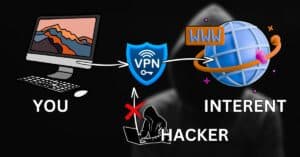
This prevents data leaks. Server locations matter. A wide range allows better allows for better global access and faster speeds. Connection speed is critical. Choose a VPN with minimal impact on your internet speeds. Device compatibility is important. Make sure the VPN works with all your devices, including mobile and set-top boxes.
Consider how many devices you can connect simultaneously with a single subscription. Look for VPNs offering 24/7 customer support through multiple channels.
For example, NordVPN offers a tool called CyberSec. This blocks ads and protects against malware. ExpressVPN also has a feature called Trusted Server technology. This makes sure that no data is ever written to hard drives.
Free vs. Paid VPNs: What’s the Difference?
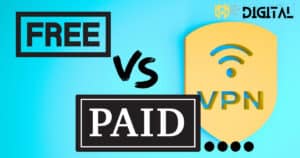
While free VPNs may seem appealing, they often have limits and risks. Let’s quickly compare them.
Free VPNs can be useful. They let you access websites safely. However, free VPNs may have issues. They may collect your data and sell it. Free VPNs may also be slow or unreliable. Paid VPN services are often better.
They provide more security and privacy. Paid VPNs usually have faster speeds too.
Before using any VPN, research it carefully. Make sure it meets your needs for privacy and security.
Limited server locations mean slower speeds. Less bandwidth may also result in slower speeds. Some VPN services log and sell user data. Security features may be limited. Some VPNs often display ads.
Paid VPNs:Virtual Private Networks (VPNs) are services you can pay for. They protect your online activities. Paid VPNs offer more features than free ones. You can use them to hide your IP address. This keeps your internet use private. Paid VPNs also provide stronger encryption. This makes it harder for others to see what you do online.
Many paid VPNs have servers all over the world. This allows you to access content that may be blocked in your location. Overall, paid VPNs give you more security and privacy benefits compared to free options.
Extensive server networks provide quick internet speeds and unlimited data usage. There’s a strict policy of not keeping any logs. Advanced security features are offered. You also get an ad-free experience.
While there are some good free VPNs, we suggest using a paid VPN service. This gives you better protection and performance.
A free VPN is like a basic lock on your door. A paid VPN is a more advanced security system. It has cameras, alarms, and 24/7 monitoring. The paid VPN offers more protection than the free one.
VPN Protocols Explained
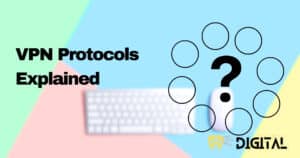
VPN protocols decide how your data moves through a connection. Here are some common protocols you’ll find:
OpenVPN: This open-source protocol balances security and speed well.
WireGuard: This new protocol offers better speed and security.
IKEv2: This protocol is fast and stable, especially for mobile devices.
L2TP/IPSec: This is widely supported but slower than newer protocols.
PPTP: This is outdated and less secure, but still used for its speed.
Many top VPN services now offer their own protocols. These aim to provide the best speed and security. For example, ExpressVPN has Lightway and NordVPN has NordLynx. These custom protocols try to balance speed and security.
Think of VPN protocols as different types of vehicle. OpenVPN is like a secure armored truck. WireGuard is like a speedy sports car.
VPNs for Streaming: Unblock Your Favorite Content
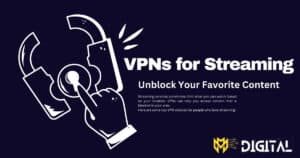
Streaming services sometimes limit what you can watch based on your location. VPNs can help you access content that is blocked in your area.
Here are some top VPN choices for people who love streaming:
ExpressVPN is always able to access major streaming services. It also provides excellent internet speeds.
NordVPN has special servers just for streaming. This allows smooth, uninterrupted video playback.
Surfshark can access many streaming platforms. It also costs less than other options.
CyberGhost has servers designed just for specific streaming services.
When picking a VPN for streaming, look for ones with many server locations. These VPNs should also work well to get around VPN blocking systems.
ExpressVPN’s MediaStreamer feature helps you unblock content. You can use it on devices that don’t support VPNs directly, like some smart TVs.
VPN Speed: Why It Matters and How We Tested It
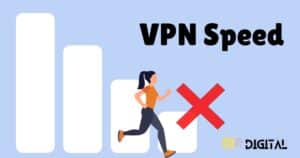
Connection speed is very important for a good online experience. We did many speed tests across different server locations. This helped us find the fastest VPN options. Here’s how we tested:
I first measured internet speed without using a VPN. Then, I connected to VPN servers in different locations. I ran multiple speed tests to account for any changes. Finally, I calculated the average percentage of speed loss.
Top performers in speed tests include NordVPN, ExpressVPN, and Hotspot Shield. These are some of the fastest VPNs based on our tests. They offer quick connections and reliable performance.
To put this in a better way, a good VPN could slow down your speed by 10-20%. But a bad one could slow you down by 50% or more.
Privacy and Security: Keeping Your Data Safe
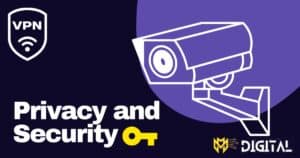
The main job of a VPN is to keep your online activities private. When choosing a VPN, look for these important security features:
When evaluating VPN services, pay close attention to these critical security features:
- AES-256 encryption: This is the strongest type of encryption used by the military to keep data safe.
- Perfect forward secrecy: The VPN regularly changes the encryption keys. This prevents your data from being accessed later, even if the keys are somehow discovered.
- DNS leak protection: The VPN makes sure your DNS requests go through the VPN tunnel, not your regular internet connection.
- IPv6 leak protection: This feature stops any IPv6 traffic from going outside the VPN tunnel.
- RAM-only servers: All data on the VPN servers is wiped clean with every reboot. This ensures there is no trace of your activity.
VPNs like NordVPN and ExpressVPN go above and beyond with features like double VPN connections and Tor over VPN for enhanced privacy.
VPNs like NordVPN and ExpressVPN go further to protect your privacy. They have extra features like double VPN connections and Tor over VPN. These make your online activities more private and secure.
Imagine your data like a letter. When you use the regular internet, it’s like sending a postcard. Anyone can see what’s written on it. But with a VPN, it’s like putting your letter in a secure envelope. This hides the contents from others.
VPNs for Mobile Devices and Set-Top Boxes
As we use more mobile devices and TV boxes for online activities, it’s important to protect them with a VPN. Look for VPNs that offer:
Dedicated apps for iPhones and Android phones. Support for smart TVs and streaming devices like Amazon Fire TV and Apple TV. Simple interfaces made for touch screens and remote controls. You can choose which apps use the VPN connection.
Top choices for mobile and set-top box use are ExpressVPN, NordVPN, and Surfshark.
ExpressVPN’s app lets you easily watch streaming content on your big TV screen. The app works with the Amazon Fire TV Stick. You can use it to access content that is usually blocked.
The Best VPNs for Specific Use Cases
VPNs for Specific Use Cases
Different users have different needs. Here are our recommendations for specific use cases:
- Good for torrenting: Private Internet Access and NordVPN are great choices.
- Good for gaming: ExpressVPN and VyprVPN are the best options.
- Good for China: ExpressVPN and VyprVPN work well.
- Good for business: NordVPN Teams and Perimeter 81 are the best.
- Good for occasional use: Windscribe and TunnelBear are good choices.
Each of these VPNs offers specialized features for their use cases. For instance, NordVPN’s P2P-optimized servers are ideal for torrenting, while ExpressVPN’s obfuscated servers help bypass strict censorship in China.
Emerging Trends in VPN Technology
The VPN industry is always changing. Here are some new trends to watch:
- More providers use WireGuard. This modern protocol is faster than the older ones.
- VPNs are adding more security features. These include password managers and cloud storage.
- Some blockchain-based VPNs offer more privacy and resist censorship.
- Some VPNs use AI to detect and block threats.
- As the Internet of Things grows, VPNs are protecting smart home devices.
For example, NordVPN offers more than just a VPN service. It also has a password manager called NordPass and a cloud storage service called NordLocker. These are all part of NordVPN’s security products.
FAQs About VPN Services
1. What is the most secure VPN in 2024?
NordVPN is known as one of the most secure VPN services in 2024. It has many useful features. These include double VPN, Onion over VPN, and CyberSec malware protection. NordVPN also has a strict policy of not keeping any logs. The service also gets regular security checks.
2. What is the number 1 VPN service?
ExpressVPN is a popular VPN service. It offers great speed, security, and ease of use. The VPN service works well to unblock streaming sites. It also has strong privacy features.
3. What is the best VPN in 2024 Reddit?
On Reddit, people often suggest using Mullvad VPN. This is because Mullvad focuses a lot on privacy. It lets you create an anonymous account and pay with cryptocurrency. But different users have different needs, so they may prefer other VPNs.
4. Which VPN is the most secure?
ProtonVPN is one of the most secure VPNs. It offers strong encryption and a strict no-logs policy. It also has advanced features like Secure Core servers. The team behind ProtonVPN also created ProtonMail, a respected encrypted email service.
5. Are VPNs legal?
VPNs are allowed in most places, but some countries limit them. Before using a VPN, check the local laws where you are.
6. Will a VPN slow down my internet connection?
Some speed loss is common when using a VPN. But leading VPN providers work to limit this effect. Pick the fastest VPN option to keep good internet speeds.
7. Can I use a VPN on my smartphone?
Yes, VPN companies offer apps for iPhones and Android phones.
8. Do I need a VPN at home?
While public Wi-Fi is a big risk, using a VPN at home can still keep your privacy safe from your internet provider and hackers.
9. How do I choose the right VPN?
Consider your needs, such as streaming or privacy. Compare features, server locations, and prices to find the best fit for you.
Conclusion: Choosing the Right VPN for You
Choosing the right VPN service depends on your needs, budget, and skills. Here are our top recommendations.
- Best overall VPN: NordVPN
- Easy to use: ExpressVPN
- Best budget option: Surfshark
- Best free VPN: ProtonVPN
- Best for streaming: ExpressVPN, NordVPN, CyberGhost
- Best for privacy: Mullvad, ProtonVPN
- Best for torrenting: Private Internet Access, NordVPN
- Best for customization: Private Internet Access, Hide.me
- Fastest VPN: Hotspot Shield, NordVPN, ExpressVPN
- Best for beginners: TunnelBear, CyberGhost
- Best for tech-savvy users: AirVPN, Windscribe
- Best integrated security: Norton Secure VPN
